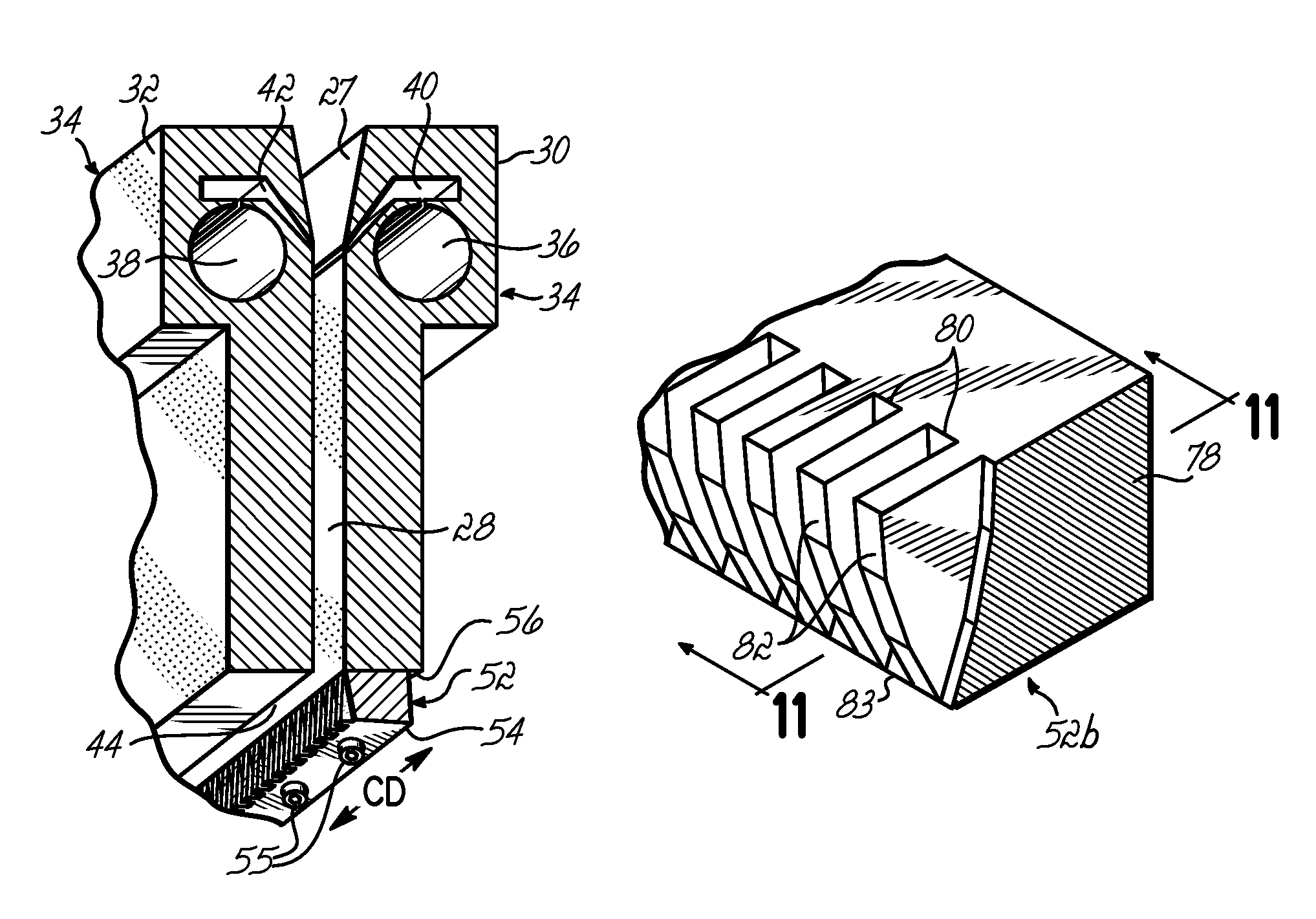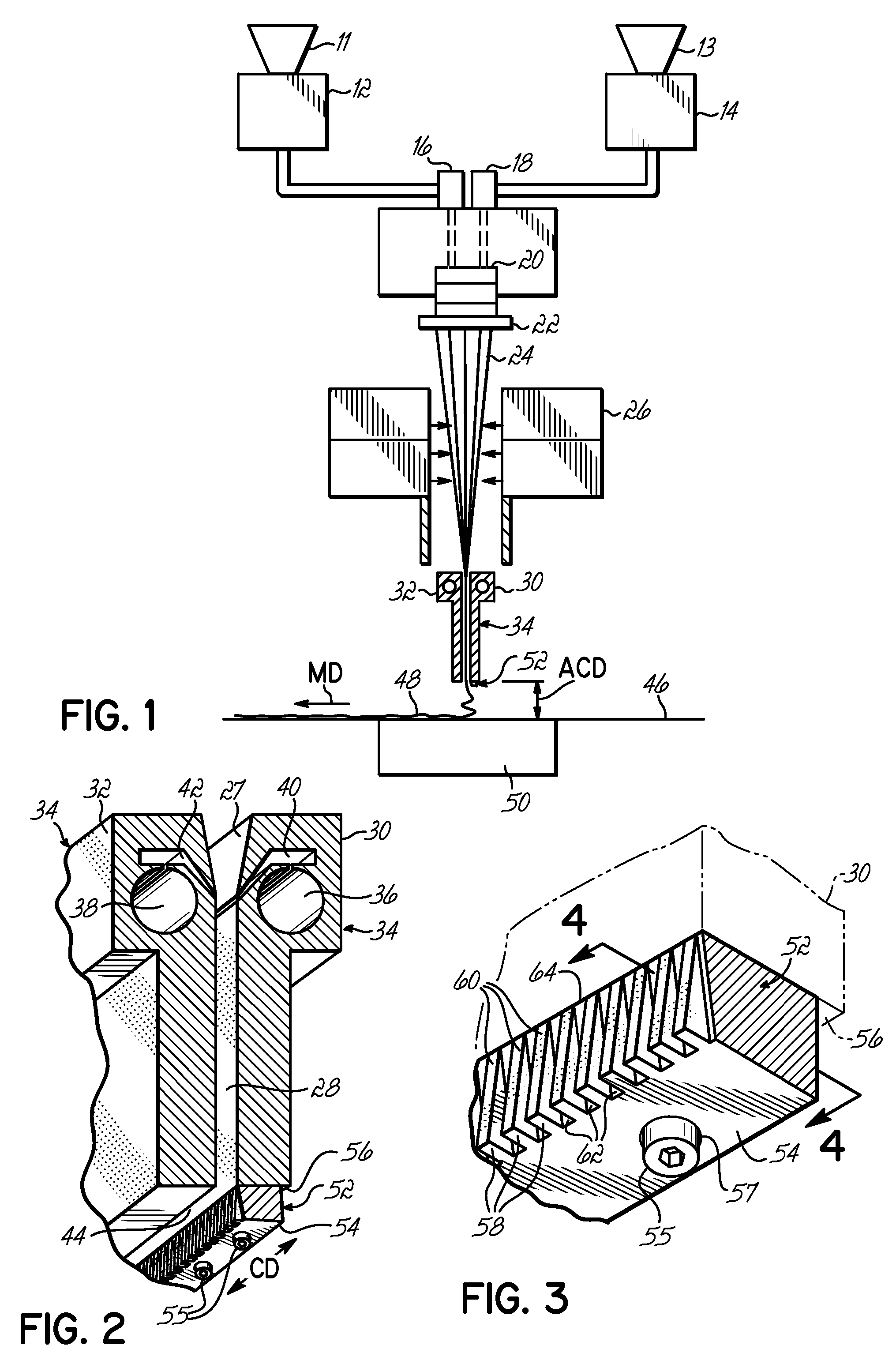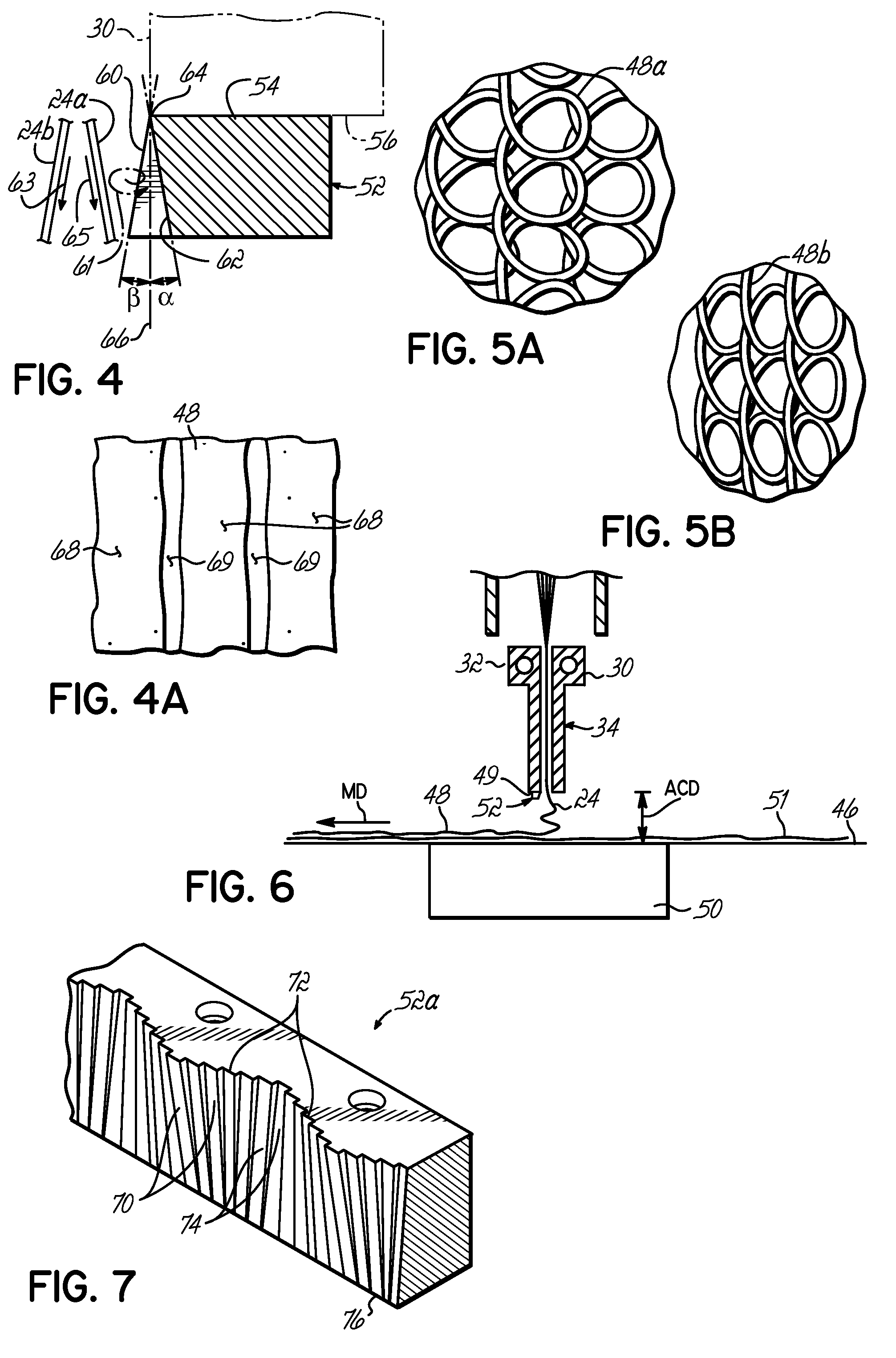Stabilized filament drawing device for a meltspinning apparatus and meltspinning apparatus including such stabilized filament drawing devices
a technology of stabilizing and drawing devices, which is applied in the direction of filament/thread forming, manufacturing tools, and melt spinning methods, etc., can solve the problems of reducing the long range uniformity affecting the quality of the collected nonwoven web, and unpredictable variations in the looping of the filament, so as to prevent the propagation of the vortex, significantly reduce the turbulence, and reduce the randomness of the filament trajectories
- Summary
- Abstract
- Description
- Claims
- Application Information
AI Technical Summary
Benefits of technology
Problems solved by technology
Method used
Image
Examples
Embodiment Construction
[0039]The invention is directed to apparatus and method for controlling the flight of spunbond filaments in the space between the slotted outlet of a drawing device and a collection device. To that end, a drawing device includes multiple guides that interact with the high-velocity air flow and entrained filaments to influence filament laydown on the collection device. Although the invention will be described herein as being associated with an exemplary meltspinning system, it should be understood that modifications to the exemplary meltspinning system described herein could be made without departing from the intended spirit and scope of the invention.
[0040]With reference to FIG. 1, a spunbonding apparatus 10 is equipped with a pair of screw extruders 12, 14 that each convert a solid melt-processable thermoplastic polymer into a molten state and transfer the molten thermoplastic polymers under pressure to a corresponding set of metering pumps 16, 18. Pellets of thermoplastic polymers...
PUM
| Property | Measurement | Unit |
|---|---|---|
| rotational angles | aaaaa | aaaaa |
| diameters | aaaaa | aaaaa |
| temperature | aaaaa | aaaaa |
Abstract
Description
Claims
Application Information
 Login to View More
Login to View More - R&D
- Intellectual Property
- Life Sciences
- Materials
- Tech Scout
- Unparalleled Data Quality
- Higher Quality Content
- 60% Fewer Hallucinations
Browse by: Latest US Patents, China's latest patents, Technical Efficacy Thesaurus, Application Domain, Technology Topic, Popular Technical Reports.
© 2025 PatSnap. All rights reserved.Legal|Privacy policy|Modern Slavery Act Transparency Statement|Sitemap|About US| Contact US: help@patsnap.com



